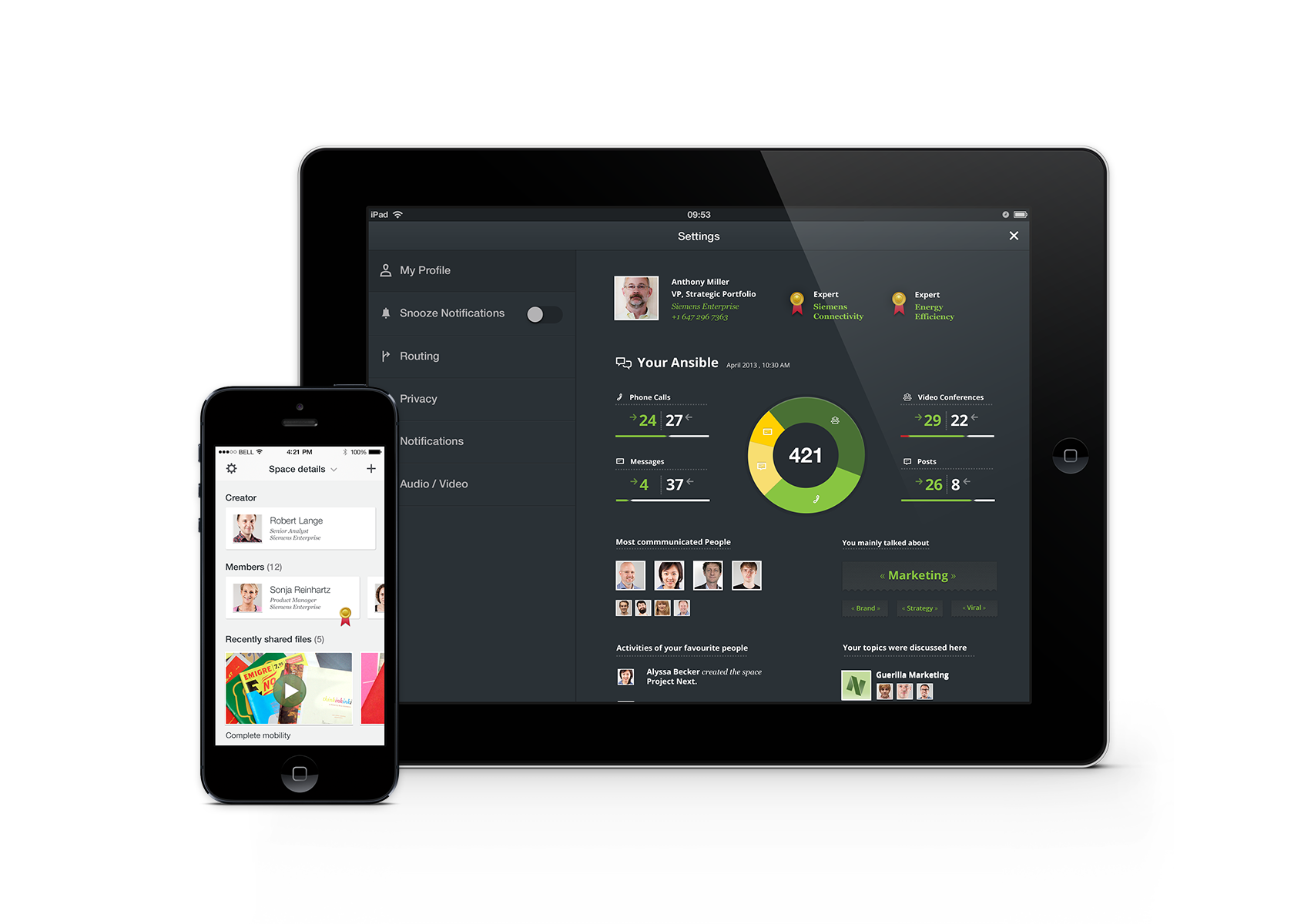

Siemens Enterprise Communications has rebranded itself Unify at events either side of the Atlantic in Munich and New York, claiming the project has been three years in the making.
Executives at the newly named company unveiled the new name and released more details about Project Ansible, a unified communications (UC) platform first introduced in June.
Unify executives said the company is launching an aggressive campaign to increase awareness of the new name, including advertising both online and in print across business, trade and industry publications in such markets as the United States, Germany, Great Britain and Brazil.
Unify officials are expecting the new brand and their Project Ansible platform to give the company momentum in a crowded UC market that holds the promise of easier and less costly collaboration but has yet to see the kind of growth many vendors and analysts have been predicting.
Still, IDC analysts have the UC technologies and services market at more than $26.2 billion (£16.5bn) in 2013 and growing to almost $38 billion (£24bn) by 2016, a sizeable opportunity for all vendors.
“Unify is uniquely positioned to lead our customers and the industry toward the emergence of a new way to work that will transform how enterprises communicate and collaborate, where technology will amplify the collective effort of information workers, energize teams and processes, and enhance business performance,” Unify CEO Hamid Akhavan.
The key for Unify will be the Ansible platform, which is designed to seamlessly aggregate all communications streams to enable businesses to manage it all centrally via a single common user interface.
The first version of the Ansible platform will be a cloud-based software-as-a-services (SaaS) offering that will support four communications channels simultaneously—voice, video, text and remote screen sharing. In addition, users will be able to move multichannel conversations without interruption from one device to another through a simple gesture or “call swipe”.
Project Ansible also will not only support Unify technologies—such as the company’s OpenScape UC portfolio—but also corporate telephony offerings from rivals likes Cisco Systems and Avaya.
Zeus Kerravala, principal analyst with ZK Research, said the new brand and Ansible are a good start, but urged Unify officials to focus on mobile and the cloud and to leverage Ansible to create an “easy-to-use, customizable workspace in which workers can bring in different applications, data and conversations,” and to ensure that the APIs and software-developer kits (SDKs) they release that enable programmers to build applications integrated with Ansible functionality can be used by developers with little or no telephony knowledge.
“Lots of UC vendors have this vision, but you still need [‘old phone guys’] to build the apps,” he said. “Getting rid of this requirement will go a long way to making Unify appeal to a different audience.”
Do you know all about 4G and the mobile future? Take our quiz.
Originally published on eWeek.
Ahead of 5 April deadline, Trump is to hold White House meeting over possible investors…
Apple fined 150m euros over App Tracking Transparency feature that it says abuses Apple's market…
OpenAI to release customisable open-weight model in coming months as it faces pressure from open-source…
Samsung's Bespoke AI-powered fridge monitors food to create shopping lists, displays TikTok videos, locates misplaced…
Huawei sees 38 percent jump in consumer revenues as its smartphone comeback continues to gather…
In world-first, China approves commercial flights for EHang autonomous passenger drone, paving way for imminent…